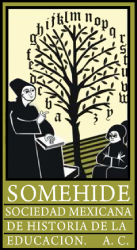Evolución de la educación y las ideologías políticas en el Japón moderno: de la restauración Meiji a las reformas de posguerra
DOI:
https://doi.org/10.29351/rmhe.v13i25.634Palabras clave:
Restauración Meiji, educación en Japón, ideología política, reforma educativa, Japón de posguerraResumen
El presente estudio examina la evolución de la educación y las ideologías políticas en el Japón moderno, desde la Restauración Meiji hasta la era posterior a la Segunda Guerra Mundial. A través de una metodología histórica cualitativa, se analizan fuentes primarias y secundarias para explorar la relación entre las reformas educativas y los cambios políticos, con un enfoque en las principales políticas y su impacto en la sociedad. La investigación destaca cómo la educación moldeó y fue moldeada por las ideologías políticas, contribuyendo a la modernización y transición democrática de Japón. Entre sus aportaciones, el estudio ofrece una línea del tiempo que abarca más de un siglo, un enfoque interdisciplinario que une la historia de la educación con la ciencia política, y un análisis crítico de los cambios ideológicos en la educación. Asimismo, enfatiza la transición democrática en el periodo de posguerra, aportando relevancia contemporánea e implicaciones para las políticas educativas actuales. Al rastrear estos desarrollos, el estudio proporciona una visión profunda de la compleja relación entre educación, política e identidad nacional en el Japón moderno.
Citas
Abegglen, J. C. (1970). The economic growth of Japan. Scientific American, 222(3), 31-37. http://www.jstor.org/stable/24925751
Arai, Y. (2019). Modern democratic theories and political education in Japan. Educational Studies in Japan, 13, 67-79. https://doi.org/10.7571/esjkyoiku.13.67
Aspinall, R. W. (2001). Teachers’ unions and the politics of education in Japan. State University of New York Press. https://eric.ed.gov/?id=ED460440
Bamkin, S. (2019). Moral education in Japan: The disjoint between research on policy and research on practice. Social Science Japan Journal, 22(2). https://doi.org/10.1093/ssjj/jyz008
Beauchamp, E. R. (1971). Recent developments in the Japanese student movement. Peabody Journal of Education, 48(4), 321-324. https://eric.ed.gov/?id=EJ041576
Beauchamp, E. R. (1987). The development of Japanese educational policy, 1945-85. History of Education Quarterly, 27(3), 299-324. https://doi.org/10.2307/368630
Fujita, H. (2000). Education reform and education politics in Japan. American Sociologist, 31, 42-57. https://doi.org/10.1007/s12108-000-1033-9
Grajdanzev, A. J. (1943). The “ethical elevation” of Japanese politics. Far Eastern Survey, 12(7), 67-71. https://oa.mg/work/10.1525/as.1943.12.7.01p1178x
Griffis, W. E. (1912). Mutsuhito the Great. The North American Review, 196(682), 328-338. http://www.jstor.org/stable/25119836
Hood, C. P. (2001). Japanese education reform: Nakasone’s legacy. Routledge. https://books.google.co.uk/books?id=7R5ZgKpwyc8C&printsec=frontcover#v=onepage&q&f=false
Hoston, G. A. (1984). Marxism and national socialism in Taishõ Japan: The thought of Takabatake Motoyuki. The Journal of Asian Studies, 44(1), 43-64. https://doi.org/10.2307/2056746
Ide, K. (2009). The debate on patriotic education in post-World War II Japan. Educational Philosophy and Theory, 41(4), 441-452. https://doi.org/10.1111/j.1469-5812.2008.00510.x
JICA [Japan International Cooperation Agency] (2011). Part I: Overview of the history of Japan’s education. https://www.jica.go.jp/Resource/jica-ri/IFIC_and_JBICI-Studies/english/publications/reports/study/topical/educational/pdf/educational_02.pdf
Liu, J. (2019). On the education reform of the Meiji Japan. International Journal of New Developments in Engineering and Society, 3(4), 21-27. https://doi.org/10.25236/IJNDES.030404
MEXT [Ministry of Education, Culture, Sports, Science and Technology] (1947). White paper on education, culture, sports, science, and technology. Chapter 1. Part 3: How the fundamental law of education befitting to the new times should be. https://www.mext.go.jp/b_menu/hakusho/html/06101913/004.htm
MEXT (2025). Overview of education policy. https://www.mext.go.jp/en/policy/education/overview/index.htm
Morito, T. (1955). Educational reform and its problems in post-War Japan. International Review of Education / Internationale Zeitschrift Für Erziehungswissenschaft / Revue Internationale de l’Education, 1(3), 338-351. http://www.jstor.org/stable/3441564
Murakami, S., & Bunkichi, I. (1956). Post-war reconstruction of Japanese education and its social aspects. The Journal of Educational Sociology, 29(7), 309-316. https://doi.org/10.2307/2264174
Nakamura, Y., & Tobe, R. (1988). The Imperial Japanese Army and politics. Armed Forces & Society, 14(4), 511-525. http://www.jstor.org/stable/45305016
Okada, A. (2012). Education reform and equal opportunity in Japan. Journal of International and Comparative Education, 1, 116-129. https://doi.org/10.14425/00.45.78
Shimbori, M. (1960). The fate of postwar educational reform in Japan. The School Review, 68(2), 228-241. http://www.jstor.org/stable/1083588
Sims, R. (2001). Japanese political history since the Meiji renovation 1868-2000. Palgrave Macmillan.
Sullivan, P. (1966). John Dewey’s philosophy of education. The High School Journal, 49(8), 391-397. http://www.jstor.org/stable/40366240
Swale, A. (2013). The political thought of Mori Arinori: A study of Meiji conservatism. Routledge.
The Journal of Education (1908, jan. 23). The Imperial Rescript on Education in Japan. The Journal of Education, 67(4), 102. https://www.jstor.org/stable/42811291
The University of Tokyo (2025). About the University of Tokyo. https://www.u-tokyo.ac.jp/en/about/about.html
Waseda University (2020). History. https://www.waseda.jp/top/en/about/history
Yamashita, H., & Williams, C. (2002). A vote for consensus: Democracy and difference in Japan. Comparative Education, 38(3), 277-289. https://doi.org/10.1080/0305006022000014142
Yonezawa, A. (2003). The impact of globalization on higher education governance in Japan. Higher Education Research & Development, 22, 145-154. https://doi.org/10.1080/07294360304113
Yu, A. C. (1872). Gakusei (educational system, the education system order). Japanese Wiki Corpus. https://www.japanesewiki.com/history/Gakusei%20(educational%20system,%20the%20Education%20System%20Order).html
Descargas
Publicado
Cómo citar
Número
Sección
Licencia
Derechos de autor 2025 Habib Badawi

Esta obra está bajo una licencia internacional Creative Commons Atribución-NoComercial-CompartirIgual 4.0.










